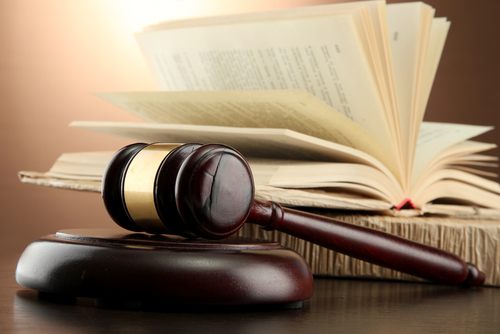Did you know that since January 1, you can get in serious legal trouble for unlocking your cell phone? That is, the process of liberating your phone from the specific mobile carrier, such as Verizon or AT&T, to which your phone is likely linked right out of the box? Before, you had the freedom to unlock your phone without being subject to the severe penalties of the draconian Digital Millennium Copyright Act (DMCA). So what happened on January 1? Well, the DMCA permits the Librarian of Congress to exempt from liability behavior that would otherwise run afoul of the DMCA. The Librarian of Congress had been recognizing the right of cell phone owners to unlock their phones and sign up with which ever service provider they chose. However, all that changed in January when the Librarian of Congress withdrew the fickle hand of protection.
Why does this matter to people with disabilities, particularly people who are blind or visually impaired? Well, right now the Librarian of Congress protects people with so-called print disabilities from the DMCA's severe civil and criminal penalties when they are forced to unlock the ebooks they buy just to be able to read them using text-to-speech software programs or other assistive technologies. That's right, if a college student who’s blind finds out she can't read an ebook she bought because the digital rights protection measures built into it by the copyright owner get in the way, she would be in big legal trouble but for the Librarian of Congress's magnanimous grant of permission to somehow circumvent those protection measures. I say “magnanimous” because the DMCA vests this incredibly broad authority in the Librarian, an unelected official, who can only be overruled by an act of Congress.
And an act of Congress is exactly what a growing number of consumer advocacy groups are calling for in light of the Librarian's decision to take away your freedom to spend your money on the mobile phone service provider of your choice. Currently, the US Registrar of Copyrights is testifying before a House Committee on the future of copyright law in America and the potential need for reform. The Obama Administration seems to be in agreement with consumer advocates that cell phone unlocking should be allowed, but whether the DMCA should be amended, well, that's another matter entirely and one that the massive lobby representing copyright owners is mobilizing to put down.
But wait a minute. If the Librarian of Congress is currently saying it's okay for people with print disabilities to get around the copy protection measures if doing so is necessary to give them access, what's the problem? True, perhaps, but the problem is our community has had to fight for this “magnanimous allowance” over and over again for the last decade, and not with consistent success. In fact, in 2010, the Copyright Office formally recommended to the Librarian that the DMCA exemption in place at that time should not be renewed, meaning that although the Librarian ultimately did not go along with that stingy recommendation, people with disabilities came within a hair's breadth of a legal abyss just for trying to read books they lawfully obtained.
This sorry state of affairs is the subject of a recent excellent op ed in Slate Magazine, in which the author lays out the compelling case for how current law does a disservice to people with disabilities and needs to be reformed.
One thing is absolutely certain: with the exponential changes in multimedia and other digital technology we're witnessing, we must find a way now to strike the right balance between legitimate intellectual property interests and the right of equal access to information by people with disabilities. One area that some of us are looking into is the need for changes in current law to make captioning and description of video content more available through so-called crowd-sourcing and other cutting edge technologies. If it's okay for my buddy to sit next to me and tell me what's visually going on during our favorite TV show, why shouldn't technologies that can make volunteer, or even commercial, description of TV programming or other video content more readily available be encouraged by our copyright law and not discouraged?
Putting it another way, if educational video publishers, commercial TV networks, and others refuse to caption or describe their content, shouldn't America's intellectual property laws freely allow, without question, third parties to do so? And when we know that securing equal access to information of all kinds is the key to learning, working, and independent living for people with disabilities, how can we leave such matters in the hands of unelected bureaucrats whose lack of accountability invites arbitrary decision making?
As Congress begins to wrestle with these issues, AFB will be working shoulder-to-shoulder with individuals and groups with whom we can make common cause to raise awareness of the need for our copyright and related laws to better honor the right of people with vision loss to equal participation in the intellectual, cultural, and social life of our nation. And if changing or getting rid of a few arcane provisions of copyright law which, either intentionally or inadvertently, stand in the way is what we must do, then so be it. We've done it before.
Gavel and books photo courtesy of Shutterstock.
